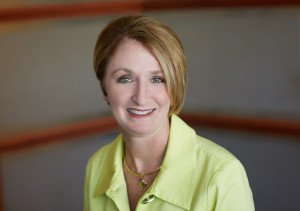
National Nurses Week is May 6-12, and two of Louisville’s prominent nursing leaders – Marcia J. Hern, EdD, CNS, RN, dean and professor of UofL’s School of Nursing, and Velinda J. Block, DNP, RN, NEA-BC, SVP and Chief Nursing Officer, KentuckyOne Health – are urging for a more highly educated nursing workforce in Kentucky. Hern and Block published an op-ed in the Courier-Journal on the topic. It is republished, in part, below.

The Bureau of Labor Statistics continues to rank nursing as one of the top two job growth areas. The registered nurse workforce is expected to grow from 2.71 million in 2012 to 3.24 million in 2022, cited by the American Association of Colleges of Nursing. The public seems well versed in this high demand workforce need as evidenced by our large pool of undergraduate students declaring nursing as an intended college major.
But numbers and/or quantity alone are not the sole variable driving this workforce demand. More importantly, it is the quality of registered nurses that help make some of the most strident contributions. One cannot dismiss the seminal research conducted by Dr. Linda Aiken from the University of Pennsylvania about the improved patient outcomes with less mortalities and complications under the care of a baccalaureate nursing workforce. Nor can we dismiss the accolades from our physician colleagues who know working at a hospital with nursing Magnet designation and a large BSN workforce ensures the highest level of nursing care, which optimizes outcomes while ensuring high levels of patient satisfaction.
Our current and future nursing workforce must be highly educated with the majority of nurses having a minimum of a bachelor’s degree …
In Kentucky, our numbers of registered nurses sound sufficient with 65,856 RNs, yet only 33 percent, or 22,006, hold a Bachelor of Science in Nursing. That puts our state near the bottom of the 50 states, ranking us 46th. Further, this number lags far behind the Institute of Medicine Future of Nursing recommendation to have an 80 percent BSN workforce by 2020. For schools and colleges of nursing, and for hospitals who continue to be the largest employers of nurses, that means we have only four years to jump another 47 percent to help reach the 80 percent national goal.
… As educators and hospital administrators we must challenge, expect and reward every person who wants to be a nurse to earn the BSN. This degree will then afford a nurse an even stronger career outlook to further his or her professional journey to earn a master’s degree or eventually earn the clinical Doctor of Nursing Practice or research PhD.
Is it not time for Kentucky to lead the nation in this regard, rather than bringing up the rear? We are making strides, but must move faster. Let’s work together to achieve an 80 percent BSN workforce throughout Kentucky.





























